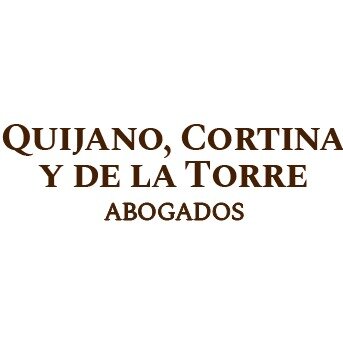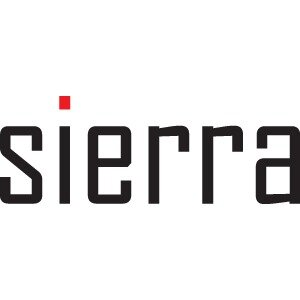Best Energy Regulatory Law Lawyers in Mexico City
Share your needs with us, get contacted by law firms.
Free. Takes 2 min.
List of the best lawyers in Mexico City, Mexico
About Energy Regulatory Law in Mexico City, Mexico
Energy Regulatory Law in Mexico City, Mexico, encompasses the rules and legal principles governing the generation, transmission, distribution, and commercialization of energy. It covers resources such as electricity, oil, natural gas, and renewable energies. The legal framework originates from national laws, but its application in Mexico City can involve specific local considerations, including municipal permits and compliance with urban planning regulations. The primary goal of Energy Regulatory Law is to ensure the efficient, safe, and sustainable use of energy resources while protecting the public interest and promoting competition in the sector.
Why You May Need a Lawyer
There are several scenarios where consulting a lawyer experienced in Energy Regulatory Law is crucial. For businesses, navigating the permit process for energy projects can be complex and highly regulated. Individuals or companies may need legal assistance if involved in energy supply contracts, facing regulatory enforcement actions, or confronted with disputes regarding tariffs or compliance with standards. Additionally, renewable energy investments, environmental impact assessments, and mergers and acquisitions within the energy sector often require specialized legal guidance. A lawyer can help interpret regulations, handle administrative processes, and represent clients before authorities or in court.
Local Laws Overview
In Mexico City, energy regulation is impacted by federal, state, and municipal laws. The most significant federal laws governing the sector include the Ley de la Industria Eléctrica (Electricity Industry Law), the Ley de Hidrocarburos (Hydrocarbons Law), and norms set forth by the Comisión Reguladora de Energía (CRE) and the Centro Nacional de Control de Energía (CENACE). Locally, the city may impose requirements regarding urban development, environmental impact, and land use. Mexico City authorities often coordinate with federal regulators in the supervision of energy-related infrastructure and compliance with safety and environmental standards. Both public and private parties must comply with these layered legal obligations to operate lawfully in the energy sector.
Frequently Asked Questions
What is Energy Regulatory Law?
Energy Regulatory Law refers to the set of rules and regulations governing the production, distribution, and use of energy resources, including electricity, oil, gas, and renewables, in Mexico.
Which authorities oversee energy regulation in Mexico City?
The Comisión Reguladora de Energía (CRE) and the Agencia de Seguridad, Energía y Ambiente (ASEA) are the primary federal authorities, while local entities manage zoning and environmental impacts.
Do I need permits to generate or sell electricity in Mexico City?
Yes, generating or selling electricity usually requires permits from the CRE and may involve additional permits from Mexico City authorities for land use and environmental compliance.
What are the requirements for renewable energy projects?
Projects must comply with federal energy regulations and local environmental and zoning laws. They often require environmental impact assessments and permits from multiple agencies.
How are energy tariffs regulated?
Tariffs for electricity and natural gas are overseen by the CRE, which sets rates and ensures transparent, fair pricing practices aligned with national policy.
Can foreign companies invest in the energy sector?
Yes, foreign investment is permitted in many segments of Mexico’s energy sector, subject to certain restrictions and requiring compliance with all regulatory requirements.
What types of disputes are common in energy law?
Disputes may arise over contracts, regulatory compliance, tariff calculations, land use, environmental obligations, and damages caused by energy projects.
Are there incentives for clean energy in Mexico City?
Both federal and city programs offer incentives such as fiscal benefits, subsidies, or priority permits for renewable energy and energy efficiency projects.
How does Energy Regulatory Law address environmental concerns?
The law mandates environmental impact assessments and compliance with environmental standards before construction or operation of energy projects, overseen by ASEA and local agencies.
Where can I get legal advice regarding energy regulation?
You can consult with specialized law firms, as well as seek guidance or information from regulatory bodies such as CRE and ASEA or professional associations related to energy law.
Additional Resources
People seeking more information or help with Energy Regulatory Law issues in Mexico City may find the following resources useful:
- Comisión Reguladora de Energía (CRE): The main federal regulatory authority for energy
- Centro Nacional de Control de Energía (CENACE): Oversees electricity transmission and market operations
- Agencia de Seguridad, Energía y Ambiente (ASEA): Responsible for the regulation of industrial and environmental safety in the sector
- Secretaría de Energía (SENER): Federal ministry responsible for energy policy
- Mexico City Environment Ministry (Secretaría del Medio Ambiente CDMX): Issues permits and oversees local environmental regulations
- Bar associations and professional organizations specializing in energy law
Next Steps
If you believe you require legal assistance in Energy Regulatory Law in Mexico City, the first step is to clearly identify your particular legal need or concern, whether it is related to permits, disputes, contracts, or compliance. Collect all relevant documents and background information regarding your issue. Consider reaching out to a qualified legal professional experienced in handling energy law matters in Mexico City, as local expertise is often essential. You may also contact regulatory bodies for guidance or to confirm specific requirements. Initial consultations are useful to assess your legal options and determine the best path forward, whether for compliance, negotiation, or formal legal proceedings.
Lawzana helps you find the best lawyers and law firms in Mexico City through a curated and pre-screened list of qualified legal professionals. Our platform offers rankings and detailed profiles of attorneys and law firms, allowing you to compare based on practice areas, including Energy Regulatory Law, experience, and client feedback.
Each profile includes a description of the firm's areas of practice, client reviews, team members and partners, year of establishment, spoken languages, office locations, contact information, social media presence, and any published articles or resources. Most firms on our platform speak English and are experienced in both local and international legal matters.
Get a quote from top-rated law firms in Mexico City, Mexico — quickly, securely, and without unnecessary hassle.
Disclaimer:
The information provided on this page is for general informational purposes only and does not constitute legal advice. While we strive to ensure the accuracy and relevance of the content, legal information may change over time, and interpretations of the law can vary. You should always consult with a qualified legal professional for advice specific to your situation.
We disclaim all liability for actions taken or not taken based on the content of this page. If you believe any information is incorrect or outdated, please contact us, and we will review and update it where appropriate.

















